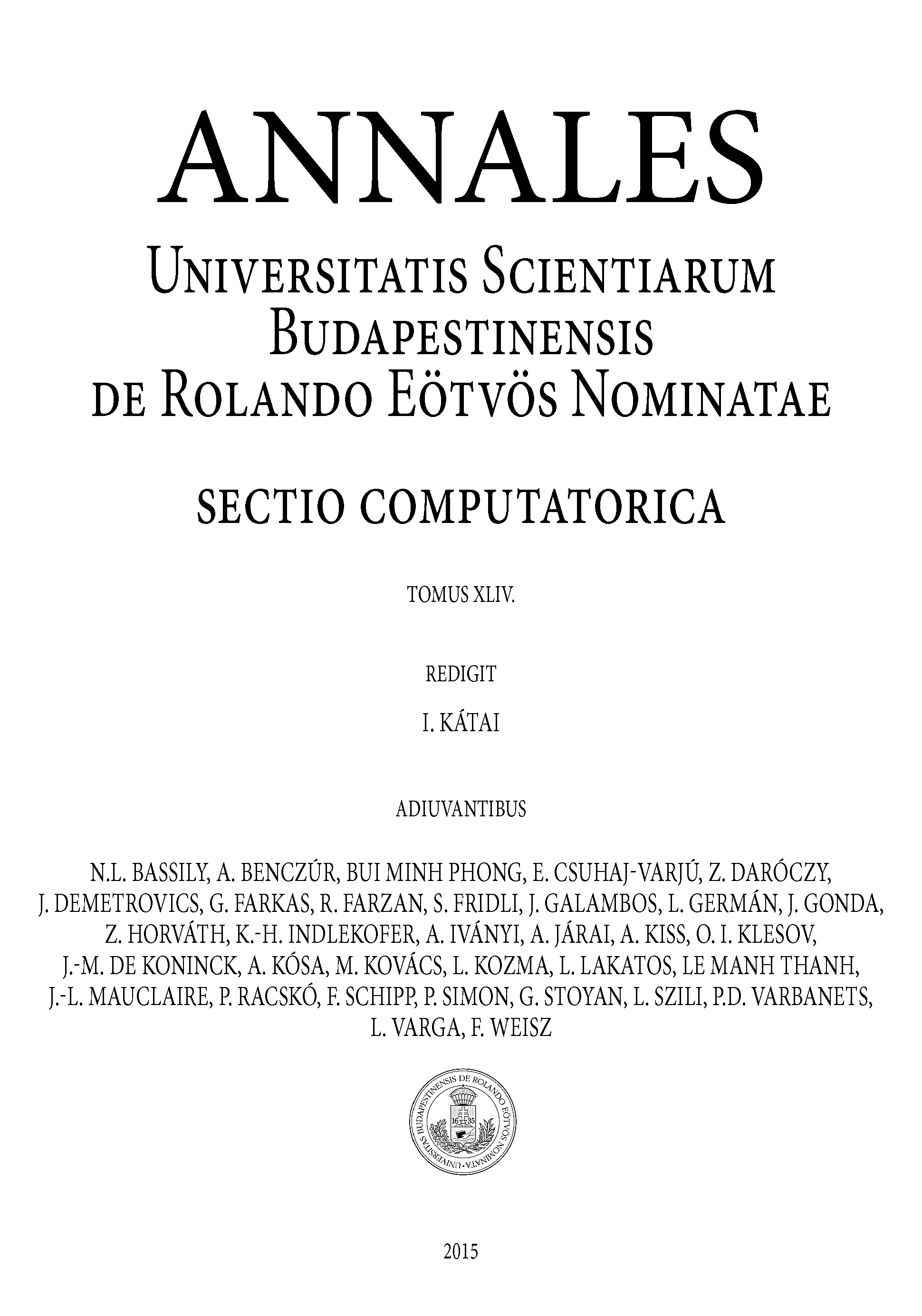https://doi.org/10.71352/ac.44.183
Une application arithmétique du Théorème du Quotient de Hadamard
Abstract.
In 1998, the American Mathematical Monthly journal published a problem [1] that could not be solved by any reader of the journal but the
author [2]:
\(\hskip 7mm(\mathcal{P}_0)\) : Let \(a\), \(b\) be natural numbers greater than \(1\).
Suppose that \(a^n-1\) divides \(b^n-1\) for every positive integer
\(n\). Prove that \(b=a^k\) for some positive integer \(k\).
The author's solution was short and elementary, but the background was not clearly exposed. Today this problem is a classic, especially
known by the Mathematical Olympiads' participants.
\(\hskip 7mm\)In this paper, I will generalize the result of \((\mathcal{P}_0)\), by examining when we can have \(P(a^n,n)\,|\,Q(b^n,n)\)
for all \(n\) large enough, with \(a\), \(b\) in \({\mathbb Z}\backslash\{-1;0;1\}\) and \(P(X,Y)\), \(Q(X,Y)\) in
\({\mathbb Z}[X,Y]\).
\(\hskip 7mm\)I will focus on the case where \(P=Q\) and thus etablish that:
\(\hskip 13mm \bullet\)
If \(P(X,Y)\) cannot be written as \(P(X,Y)=U(X)V(Y)\), with \((U,V)\in{\mathbb Z}[X]\times{\mathbb Z}[Y]\), and if for all \(n\) large enough
\(P(a^n,n)\,|\,P(b^n,n)\), then \(b=\pm a\).
\(\hskip 13mm \bullet\) If \(P\in{\mathbb Z}[X]\) is not a monomial and if for all \(n\) large enough, \(P(a^n)\,|\, P(b^n)\),
then there exists \(k\in{\mathbb N}^*\) such that \(b=\pm a^k\)
\(\hskip 7mm\)I will take advantage of the theorem known as Hadamard Quotient Theorem concerning linear recurring sequences.

 ELTE Eötvös Loránd University
ELTE Eötvös Loránd University